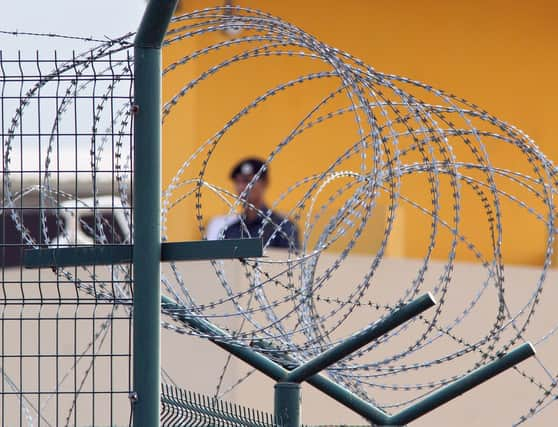Singapore death penalty: first woman in two decades to be executed - what was she found guilty of?


Singapore is reportedly preparing to execute the first woman on death row in 20 years this week as activists call for an end to the use of the death penalty in the country.
Saridewi Djamani, 45, is set to become the first woman to be executed since 2004, when Yen May Woen, 36, was hanged after being convicted of drug trafficking. Mohd Aziz bin Hussain, a 56-year-old Singaporean Malay man, is also reportedly set to be executed this week.
Advertisement
Hide AdAdvertisement
Hide AdAt least 13 people have been hanged in the country since the resumption of executions in March 2022 following the Covid-19 pandemic. If the execution of Ms Djamani and Mr Hussain goes ahead, the country will hit an average of one person executed for drug offences per month.
Activists in the country have called on Singaporean lawmakers to scrap the death penalty.
What have Saridewi Djamani and Mohd Aziz bin Hussain been found guilty of?
The pair were sentenced to death after being found guilty of possession of heroin for the purposes of trafficking. Ms Djamani was found with 30g of the class A drug, while Mr Hussain was found with around 50g.
However, questions have been raised over their convictions by Singapore-based activist group Transformative Justice Collective (TJC).
Advertisement
Hide AdAdvertisement
Hide AdMs Djamani claimed to have been unable to provide accurate statements to the police as she was going through drug withdrawal at the time. Mr Hussain alleged he was coerced into making damaging confessions after he was supposedly told by police that he would face a reduced charge that would not include the death penalty.
Both of the claims were dismissed by the court. Ms Djamani and Mr Hussain were sentenced to death for drug trafficking offences in 2018.
What have activists said about the situation?
Chiara Sangiorgio, a death penalty expert at human rights organisation Amnesty International, has urged the country to scrap the practice of capital punishment. She added that the severe punishment has not had an impact on the drug industry in the country and recommended that Singapore adopt an overhaul of drug policy instead.
She said: "As countries around the world do away with the death penalty and embrace drug policy reform, Singapore’s authorities are doing neither. The only message that these executions send is that the government of Singapore is willing to once again defy international safeguards on the use of the death penalty."
Advertisement
Hide AdAdvertisement
Hide AdThe use of the death penalty in the case of drug-related offences has been criticised by both the United Nations Office on Drugs and Crime (UNODC) and the International Narcotics Control Board (INCB).
Which countries use the death penalty for drug-related offences?
According to Amnesty International, only four countries have officially reported carrying out executions of prisoners convicted of drug-related offences in 2022. These countries were:
- Singapore
- Iran
- China
- Saudi Arabia
The practice of capital punishment has been abolished in two-thirds of the world’s countries.
The last execution in the UK was in 1964, when Gwynne Evans and Peter Allen were hanged for the murder of John West. Capital punishment was abolished 15 months after their executions.
